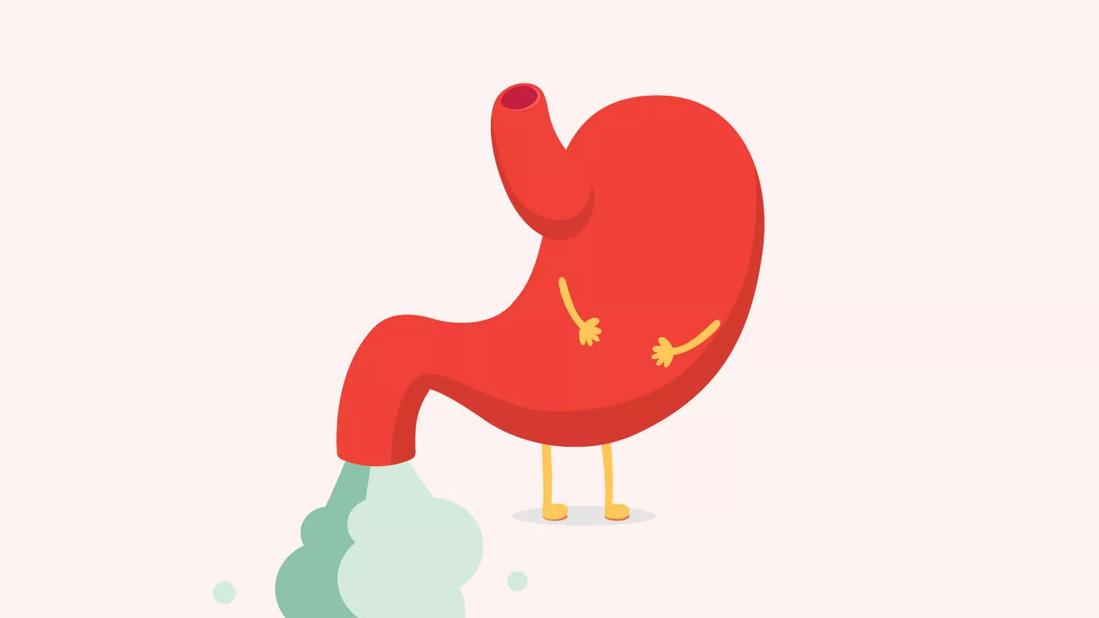Excessive flatulence could indicate a digestive issue

Image content: This image is available to view online.
View image online (https://assets.clevelandclinic.org/transform/1905cbfd-dc8d-45c7-b4a8-c6c72966dfff/Farting-1339264212-770x533-1_jpg)
Stomach having gas.
Whether you call it farting, passing wind, having gas or flatulence (the official medical term), the release of excess air through the intestinal tract is both normal and natural.
Advertisement
Cleveland Clinic is a non-profit academic medical center. Advertising on our site helps support our mission. We do not endorse non-Cleveland Clinic products or services. Policy
Why, then, are farts the butt of so many jokes? Perhaps because of those awkward moments when the body’s internal horn section suddenly plays a little too loudly.
Some people pass gas more than others. If you’re worried you may be farting too much, gastroenterologist Christine Lee, MD, says there are routes to figuring out what’s going on with your gut.
“If the amount of gas makes you uncomfortable, consult your local GI [gastrointestinal] physician for evaluation and recommendations,” says Dr. Lee. “If it is impacting your life in a negative way, you should have it checked out.”
If you’re so gassy that it is causing you pain or embarrassment, you should seek medical attention, she says.
Swallowing air (aerophagia) can cause abdominal bloating and gas. This can occur while sleeping, eating, talking, drinking or in times of stress. You can even swallow air while laughing.
In addition to swallowing air, foods rich in prebiotics and fiber are known to produce excess gas.
If your intestines are moving food through your gut too slowly (slow motility), excess gas can accumulate. The longer food and waste sit in your GI system, the more gas-producing bacteria build up, causing abdominal discomfort.
Advertisement
You also produce more gas as you age because your metabolism slows down, along with the movement of food through your colon. Yes, even your intestinal tract naturally slows down over time.
Truth be told, passing gas happens a lot more than you think. On average, it’s normal to fart between 14 and 23 times throughout your day, often without attracting much notice. For most people, it’s not a major problem. But if you find yourself consistently farting in an excessive manner — or if it comes with any sensation of pain — you should consult a doctor.
Dr. Lee suggests these tips to help lessen the impact of excess gas in your system:
Advertisement
Ultimately, Dr. Lee’s tips should help relieve your gas problem — and perhaps make you less anxious in social situations.
It’s important to talk to your doctor about any changes in your health. “Consult your physician if you’ve had a change in bowel movements — especially if they’re sudden, or if you feel that something isn’t right,” Dr. Lee says.
If you are experiencing other gastrointestinal symptoms in addition to excessive gas, you need to share that information with your doctor as well. Some symptoms to note include:
In summary, a one-cheek squeak is good for a laugh, bad for a job interview, and — usually — completely normal. That said, if you find yourself breaking wind more than 23 times a day, or you’re experiencing other gastrointestinal symptoms, there may be something amiss. When in doubt, talk to your doctor.
Advertisement

Sign up for our Health Essentials emails for expert guidance on nutrition, fitness, sleep, skin care and more.
Learn more about our editorial process.
Advertisement
Frequent burping can be many things — but likely not cancer
What, when and how much you eat are just a few factors that can impact nighttime gas levels
When it can’t pass down south, gas can definitely travel — and get trapped — up north
Fiber gets credit, but don’t let the byproduct keep you from enjoying beans
Certain foods, medications or even illness could be behind the stink
The caffeine and natural acids in coffee may trigger acid reflux, but there are ways to lessen the effects
Wait a few hours, then start with water or ice chips, graduating to clear liquids and then, soft, bland foods
Although it could be used as a moisturizer, this new trend is not recommended
Communicating clear limits helps protect your time, energy and emotional well-being
High cholesterol can be genetic, but testing and treatment can lower your heart disease risk